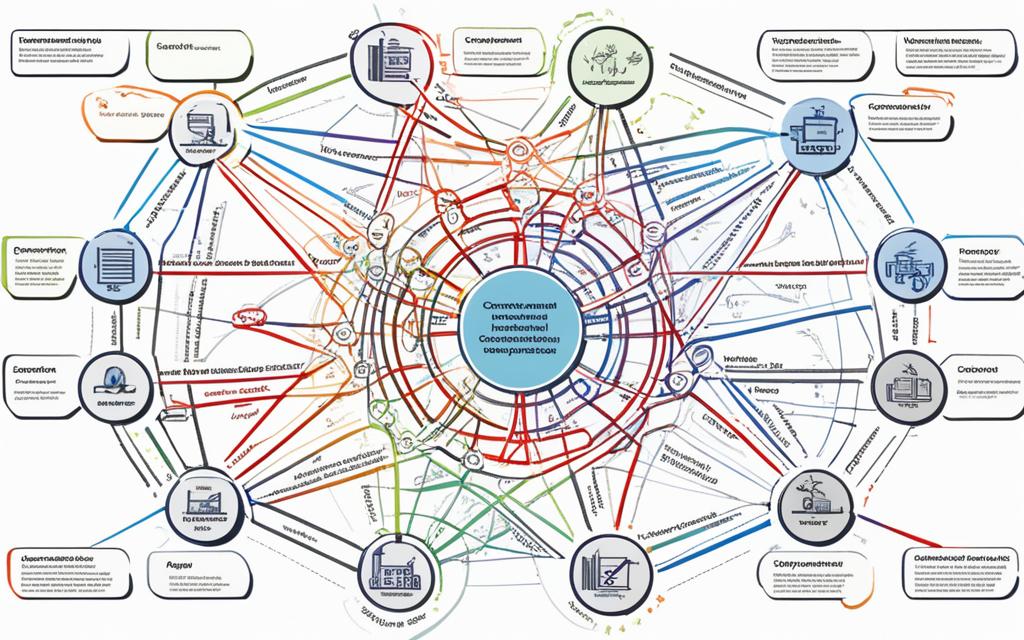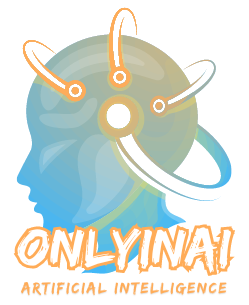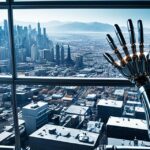Did you know 37% of businesses now use AI? This fact comes from a recent PwC survey. It shows how fast AI is growing in different fields. AI is becoming a key ally, changing how we work, learn, and talk to each other.
The rise of working with AI is opening new doors for innovation and growth. It’s making decision-making better and helping humans do more. The AI Alliance, made up of leaders, experts, and government groups, wants to make sure AI is developed responsibly. This will help it have a good effect on society.
Looking into AI’s role as our digital allies is important. We need to see how it can help us move forward while keeping things ethical and trustworthy. Let’s look into how AI is becoming a must-have in our digital lives.
Key Takeaways
- 37% of businesses have already implemented AI technologies
- The AI Alliance supports open innovation and responsible AI development
- Human-AI collaboration is reshaping various industries
- AI enhances decision-making and augments human capabilities
- Ethical considerations are crucial in AI partnerships
- AI assistance benefits span across work, learning, and daily interactions
Understanding AI’s Role in Our Digital World
AI is changing our digital world in big ways. It’s making new things possible and changing how we live and work. AI touches many parts of our lives, from health to money matters. It’s important to understand how AI is becoming a big part of our daily lives.
AI is making big changes in many industries. Companies use AI to make things run smoother, improve how they talk to customers, and open up new chances for growth. This change is not just about making things faster. It’s about changing how businesses work and finding new ways to add value.
“AI is not just a tool; it’s a catalyst for reimagining our entire digital ecosystem.”
The AI Alliance is working to make sure AI is developed in a responsible way. They focus on:
- Creating standards for AI performance
- Setting up ways to check AI
- Creating tools for ethical AI use
These efforts help tackle big issues like climate change, education, and more. They show how AI can help solve complex problems around the world.
| AI Impact Area | Benefits | Challenges |
|---|---|---|
| Healthcare | Better diagnoses, treatments made just for you | Worries about keeping data safe |
| Finance | Better catching fraud, automated trading | Worries about AI bias |
| Education | Learning tailored to you, reaching more people | Concerns about the digital gap |
As we move forward with AI, we need to think about the good and the bad. The future of our digital world depends on using AI wisely and facing its challenges together.
How Can AI Become Our Best Allies
AI is becoming a key part of our lives. By using its power, we can make it a strong ally. Let’s see how AI can boost our skills and help us make better decisions.
Fostering Human-AI Collaboration
Working together is crucial for AI and humans to reach their best. When we team up, we can solve problems that are too hard for one of us alone. This teamwork makes us more efficient and creative.
Enhancing Decision-Making Processes
AI is changing how we make decisions. It looks at lots of data and finds patterns, helping us choose better. This is making a big difference in areas like healthcare and finance.
Augmenting Human Capabilities
AI doesn’t replace us; it helps us do more. By doing simple tasks, AI gives us more time and brain power for creative work. This lets us focus on what we’re best at – coming up with new ideas and solving problems.
| Area | Human Strength | AI Strength | Collaborative Outcome |
|---|---|---|---|
| Creativity | Original ideas | Data-driven insights | Innovative solutions |
| Analysis | Contextual understanding | Rapid data processing | Comprehensive insights |
| Decision Making | Emotional intelligence | Objective evaluation | Balanced decisions |
By working together, making better decisions, and using AI to help us, AI can be our top ally in today’s complex world.
The Evolution of AI: From Tools to Strategic Partners
AI has changed from simple tools to key business allies. Companies now see AI as crucial for growth and innovation. This change brings a new way for businesses to stay ahead.
Now, strategic AI partnerships are common. Companies work with AI experts to use AI’s full power. This leads to new chances and better processes.
Using AI means more than just new tech. It’s about changing how you think and work. Companies need to pick AI solutions that match their goals and train their teams well. This helps employees use AI tools well and get the most out of them.
“AI is not just a tool; it’s a strategic partner that can transform every aspect of your business.”
AI does more than help with daily tasks. It keeps an eye on business performance and predicts trends. This gives companies the insights they need to make smart choices.
- Invest in AI technologies aligned with business goals
- Provide consistent team training for efficient AI tool use
- Utilize AI for continuous monitoring and analysis
- Leverage AI insights for strategic decision-making
As AI keeps evolving, companies that don’t see AI as a key partner will fall behind. By seeing AI as an ally, businesses can reach new heights of efficiency, innovation, and growth in the digital world.
AI’s Impact on Various Industries

Artificial intelligence is changing the way we work in many areas. It brings new ideas and makes things more efficient. Let’s see how AI is changing key sectors.
Healthcare and Medical Research
AI is making a big difference in healthcare. It helps with everything from finding new drugs to diagnosing diseases. By looking at medical images, AI can spot diseases sooner.
AI also helps create treatment plans that fit each patient better. This makes healthcare more effective.
Finance and Banking
The finance world is using AI for better risk checks, catching fraud, and helping customers. Chatbots handle simple questions, so people can focus on harder tasks. AI also helps banks make smarter loans and spot unusual transactions fast.
Education and E-Learning
AI is changing education. It creates learning plans that fit each student’s needs. This means students get exactly what they need to learn.
AI also gives instant feedback to students. This helps them understand tough topics better.
Environmental Conservation
AI is helping protect the environment. It uses machine learning to track deforestation and count animals. AI sensors check air and water quality, giving us real-time data.
AI can also predict natural disasters. This helps us prepare and respond better.
As AI gets better, its effects will grow. The United AI Alliance works with governments and developers. They make sure AI helps everyone in society.
Ethical AI Development: Building Trust and Transparency
Ethical AI is key in making AI responsible. As AI gets more complex, we need more transparency and trust. The AI world is working hard to meet this challenge.
AI needs to be clear to gain trust. Companies are now open about their AI models and how they make decisions. This openness lets users see how AI works and make better choices.
Creating responsible AI means setting standards and benchmarks. These tools check if AI systems are safe and reliable. By following these standards, companies can make sure their AI is ethical.
“Ethical AI is not just a buzzword; it’s a necessity for the sustainable growth of AI technology.”
The AI Alliance is leading the charge for ethical AI. They’re making a list of safe and secure tools for AI makers. This will help make AI more trustworthy in different fields.
| Ethical AI Practice | Benefit |
|---|---|
| Transparency in AI algorithms | Builds user trust and understanding |
| Regular ethical audits | Ensures ongoing compliance with ethical standards |
| Diverse development teams | Reduces bias in AI systems |
| Clear data usage policies | Protects user privacy and data rights |
By focusing on ethical AI, transparency, and responsible making, the AI industry is creating a future where AI is a trusted part of our digital lives.
AI Safety Measures: Ensuring Responsible Integration
AI is becoming a big part of our lives, so we need strong safety steps. Making sure AI is used right means looking at it from many angles. This way, it can help us without causing harm.
Risk Assessment and Mitigation Strategies
It’s key to check AI for risks before we use it. Companies should look for biases, security weak spots, and bad surprises. To fix these issues, they can:
- Rigorous testing in controlled environments
- Implementing fail-safes and kill switches
- Diversifying AI development teams
Regulatory Frameworks for AI Safety
Worldwide, governments are making rules for AI safety. These rules help make sure AI is used right in different areas. Important parts include:
| Framework Element | Purpose |
|---|---|
| Transparency requirements | Ensure AI decision-making processes are explainable |
| Accountability measures | Hold developers and users responsible for AI outcomes |
| Ethical guidelines | Promote fair and unbiased AI development |
Continuous Monitoring and Improvement
We need to keep an eye on AI and update it often. This means:
- Regular performance audits
- Gathering user feedback
- Updating algorithms to address emerging issues
By focusing on these safety steps, we can make sure AI is a helpful and trustworthy tool for us all.
The Role of Open Innovation in AI Advancement
Open innovation in AI is changing how we make and use artificial intelligence. It brings together different people to solve hard problems and expand AI technology.
The AI Alliance is a group of top tech companies and institutions. They support working together on AI. They host events to talk about AI uses and how to use open technology responsibly. This group shares resources and knowledge from developers, scientists, and innovators around the world.
Open-source AI projects are becoming more popular. They let developers use and improve on others’ work, speeding up innovation. This way of working also makes AI systems more transparent and trustworthy.
- Faster problem-solving through shared knowledge
- Increased diversity in AI development teams
- Better access to AI tools for smaller organizations
Companies gain from open innovation in AI by using outside expertise. This method can lead to big discoveries that might not happen with just internal efforts. It also cuts costs and risks in AI research and development.
“Open innovation is the key to creating AI systems that are truly beneficial for all of humanity.”
Looking ahead, open innovation will be key to making sure AI is developed right and ethically. By encouraging teamwork and openness, we can make AI that helps everyone and tackles big global issues.
AI-Driven Problem Solving: Uncovering Root Causes

AI problem solving is more than just quick fixes. It digs deep to find the real issues behind complex problems. This method changes how we solve problems in many areas.
Distinguishing Symptoms from Underlying Issues
AI tools are great at finding patterns we might overlook. They go through a lot of data to find the main problems. This helps businesses fix the root causes, not just the symptoms.
Leveraging Predictive Analytics
Predictive analytics uses AI to predict future trends. This helps companies stop problems before they start. By looking at past data, AI can foresee issues and suggest solutions ahead of time.
| Traditional Problem Solving | AI-Driven Problem Solving |
|---|---|
| Reactive approach | Proactive approach |
| Limited data analysis | Comprehensive data analysis |
| Human bias influence | Reduced bias through algorithms |
| Time-consuming process | Rapid problem identification |
Fostering a Culture of Critical Thinking
AI doesn’t replace human insight. It makes it better. By offering data-driven insights, AI tools encourage critical thinking in ai processes. This mix of human and machine intelligence leads to more innovative solutions.
“AI doesn’t just solve problems; it helps us ask better questions.”
Using AI-driven problem solving leads to more effective, lasting solutions. It’s not just about fixing what’s broken. It’s about building systems that prevent problems from happening in the first place.
Preparing for an AI-Empowered Future
We’re moving towards a future where AI plays a big role. It’s key to get the right skills and mindset for this change. With AI advancing fast, we need to be proactive in getting ready for the future.
Companies and people must keep learning to stay ahead. The AI Alliance, made up of tech leaders, talks about the good and bad of AI. They push for smart rules to make sure AI is developed right.
This shows we need a society that knows about AI’s role in our future.
“The key to thriving in an AI-driven world is adaptability and a commitment to lifelong learning.”
To get ready for the AI workforce, companies should:
- Put money into training team members in AI and new tech
- Offer detailed training in new technologies
- Encourage a culture that values learning and new ideas
People can also take steps to prepare for AI by:
- Keeping up with AI news in their field
- Learning skills that work well with AI, like thinking deeply and being creative
- Having a mindset that’s open to learning and looking for new chances to grow
By doing these things, we can build a workforce ready to use AI’s full power. This will lead to a future where humans and machines work well together. The path to an AI-powered future is thrilling, and with the right steps, it will be good for everyone.
Overcoming Challenges in AI Adoption
AI is changing our world fast, but companies face big hurdles in using it. These challenges include skill shortages and ethical worries. Let’s look at how businesses can overcome these issues.
Addressing Skill Gaps and Training Needs
Many companies struggle with AI skills. To fix this, investing in training is key. The United AI Alliance offers courses and tech help to make better decisions and speed up progress.
Managing Data Privacy and Security Concerns
Data privacy is crucial for both businesses and users. Companies must protect sensitive info with strong security steps. This means using encryption, controlling access, and doing regular security checks on AI data.
Navigating Ethical Dilemmas
AI brings up big ethical questions. Companies must set clear rules for using AI right. The United AI Alliance works with governments and partners to offer AI advice and education. This helps tackle ethical problems and supports responsible AI use in all sectors.


